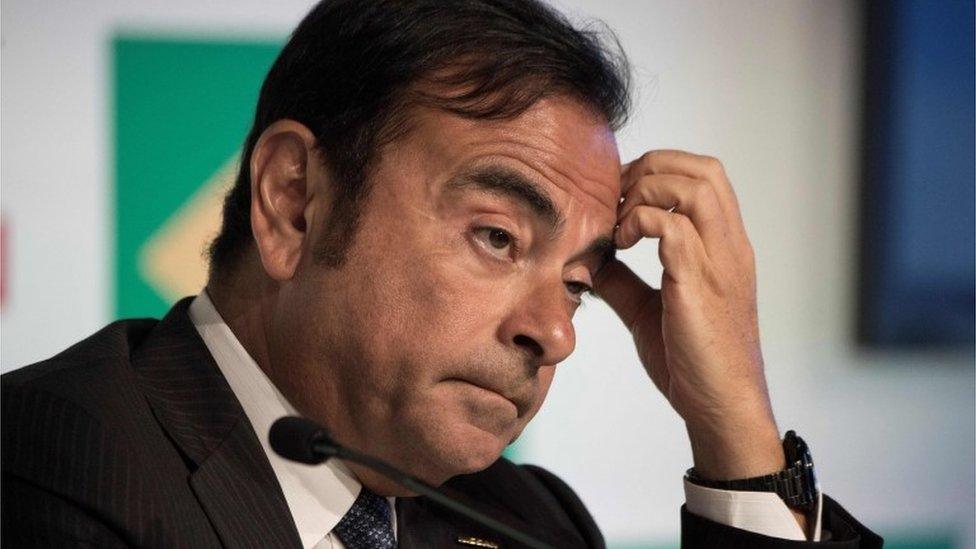Carole Ghosn: 'I'm a housewife, not a conniving woman'
- Published
Carole Ghosn is calling for President Trump's support over her husband's legal battle
Carole Ghosn knew her fight was going to get dirty when stories appeared implicating her in financial crimes allegedly committed by husband Carlos.
I was painted as a ringleader, she claims. "I'm a housewife who raised three children, and they're making me sound like this conniving woman," says the 52-year-old Beirut-born Mrs Ghosn.
Carlos Ghosn was once a titan of the corporate world, but is now detained in Japan awaiting trial on charges of misconduct while running the Nissan car company.
Earlier this year she was questioned - but never charged - in a closed hearing at a Tokyo court about what she knew. But the real motive, she believes, was "to drag me into the story to weaken Carlos - and to shut me up".
The last time she spoke to her husband was as police removed him from their Tokyo apartment early one morning in April.
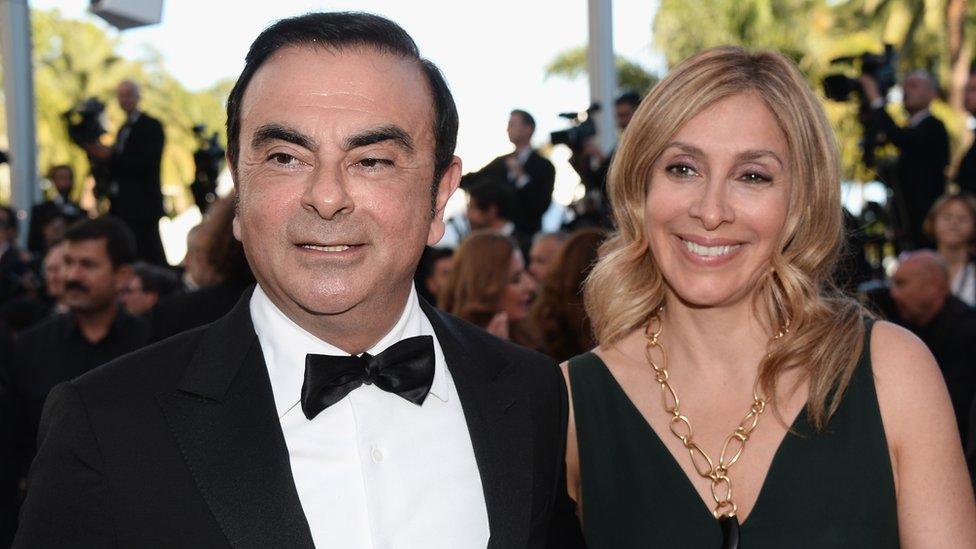
Carlos and Carole Ghosn at the 2016 Cannes Film Festival
Mr Ghosn, first detained last November, was being re-arrested on fresh allegations. There was shock, tears, the sort of chaos you'd expect when you're woken at 05:15 by 20 people demanding entry into your home.
"I think they wanted to intimidate and humiliate us," she tells the BBC. She recalls being followed around the apartment, even into the shower room. "This woman even handed me the towel."
Mrs Ghosn is now fighting back with a campaign she hopes will lead to her husband's treatment being raised with Japan's President Shinzo Abe at a G20 world leaders summit in Tokyo this month.
Increasingly worried about the 65-year-old's health, and angry she has been denied access to see him, Mrs Ghosn is speaking out.
Fall from grace
"The lawyers told me that anything I say could hurt him in the trial, so to keep my mouth shut. But I want my husband back. I want him with me. I know he is innocent." Not for the first time during the interview, she is close to tears.
His guilt, though, will be decided in a court of law, not by Mrs Ghosn's protestations. And despite asserting her husband's innocence, Mrs Ghosn says she cannot address the charges in detail because of legal advice.
Carlos Ghosn's fall from grace was spectacular. His jet-setting lifestyle came crashing down when he was arrested last year on board his private jet at Tokyo airport over claims he had under-reported his pay and perks earned at Nissan.
The Brazilian-French businessman had led Nissan's revival from near-bankruptcy in a country renowned for its corporate insularity. He then orchestrated an alliance with Renault and Mitsubishi.
His success earned him the ear of presidents and prime ministers - and even a Japanese manga superhero cartoon series. Suddenly, the couple's celebrated life was in ruins.
Mr Ghosn was planning a Renault takeover of Nissan, something fiercely resisted by elements in Japan. This is the real reason Nissan moved against him, she says. "It was a conspiracy to get rid of him."
And it's why she's adamant he won't get a fair trial.
Nissan strongly rejects the conspiracy claim. "The sole cause of this chain of events is the misconduct led by Carlos Ghosn," the company told the BBC. "Nissan's internal investigation has uncovered substantial evidence of blatantly unethical conduct. Further discoveries related to Ghosn's misconduct continue to emerge."
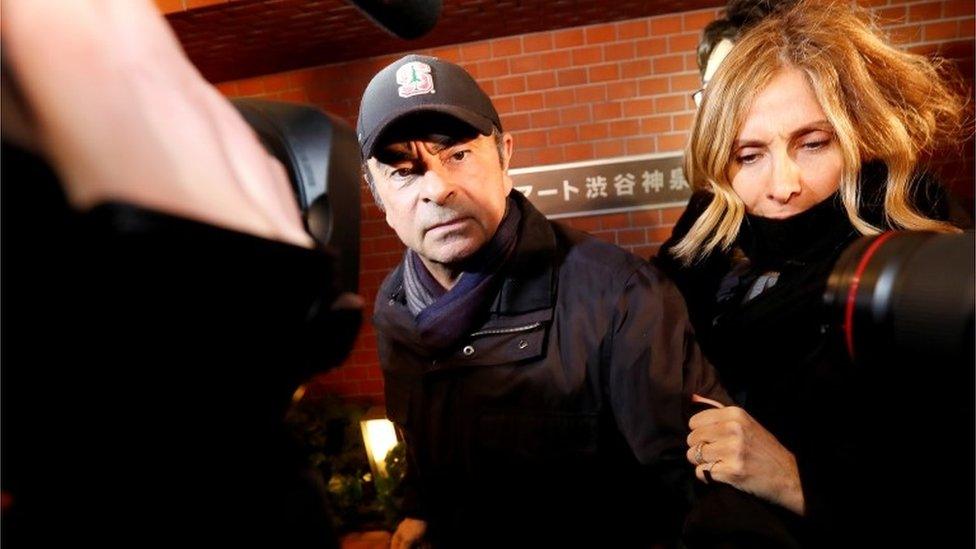
The couple face the cameras outside their Tokyo home
During 108 days in detention, Mrs Ghosn says her husband was kept in isolation in a cell with no heating over the winter, fed meagre rations, and interrogated for hours at a time without a lawyer - sometimes at night.
On his release on bail "he looked yellow," she says. "I thought he had jaundice because he wasn't seeing sunlight." He was skinny and exhausted mentally.
But other allegations were surfacing: that Nissan money was diverted for personal gain and that Renault funds were used for a private party at the Palace of Versailles after their marriage in 2016. Questions were asked about Mrs Ghosn's links to a Virgin Islands-registered company called Beauty Yachts.
Renault at first stood firmly behind Mr Ghosn, but subsequently accused him of "questionable and concealed practices".
During April's raid and the re-arrest, prosecutors seized Mrs Ghosn's Lebanese passport but failed to find her US one. She flew to France, where she appealed for help from Emmanuel Macron, and then to America, where she called on Donald Trump to intervene.
Both administrations say they "are doing everything they can," said Mrs Ghosn, who also plans to ask Brazil's president Jair Bolsonaro to take up her cause.
'Inhumane and cruel'
But are the Ghosns not just a rich, privileged couple seeking special treatment? Winning public sympathy must be hard? "We're hurting. We're suffering. And whether you are rich or poor you should have basic human rights."
She says people are genuinely shocked to learn of her husband's treatment, and that his trial is unlikely to start before next year. Although he is now back on bail, he must live in a court-appointed residence under strict conditions and is monitored by cameras 24/7. He cannot leave Japan.
Says Mrs Ghosn: "As ugly as the situation is, there were people I didn't know who came up and helped. The support of strangers is one of the things that touched me most."
She hopes her campaign will at least shine a light on what is known as Japan's "hostage justice" - long detention and harsh conditions which are designed to force a confession.
New York-based advocacy group Human Rights Watch says hostage justice "violates international human rights standards, including the presumption of innocence". Mrs Ghosn is more blunt: "It's inhumane and cruel."
She's filed two petitions with the United Nations claiming a breach of human rights, and has the support of reformist Japanese lawyers.
Life is hard and lonely, she says. "I'm anxious, worried. It's tragic what's happened". But she has no intention of backing off. "When you know something is unjust you get angry and want to fight more."
The BBC approached the Japanese embassy in Washington for comment.
- Published25 April 2019
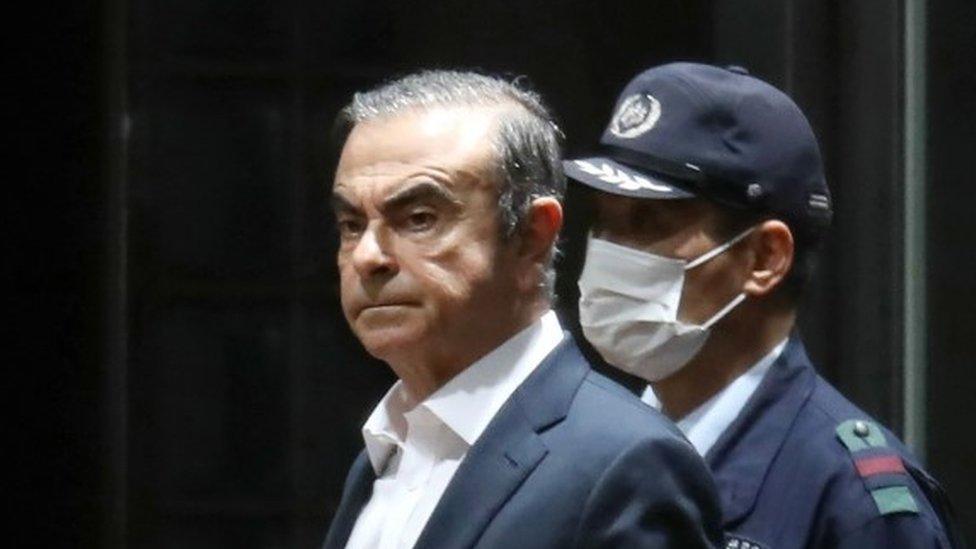
- Published22 April 2019
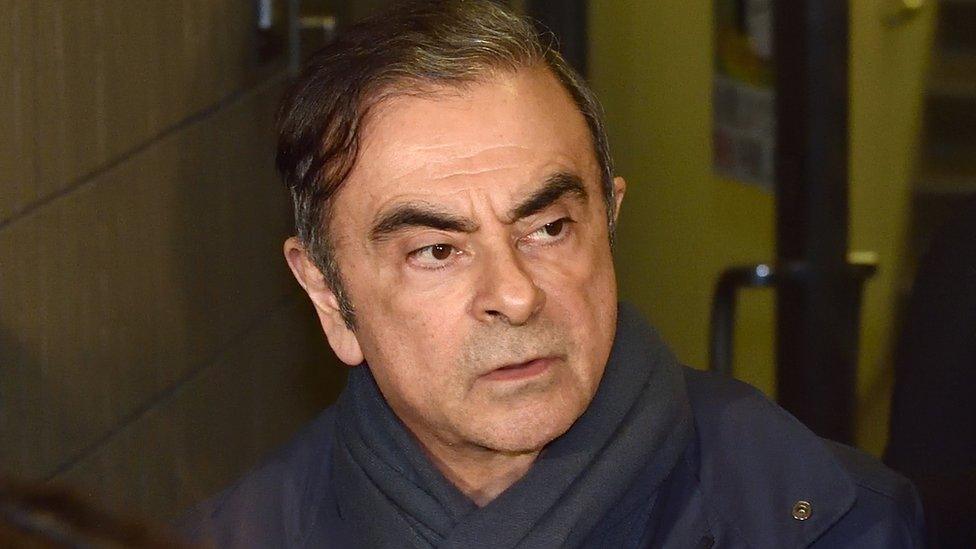
- Published9 April 2019
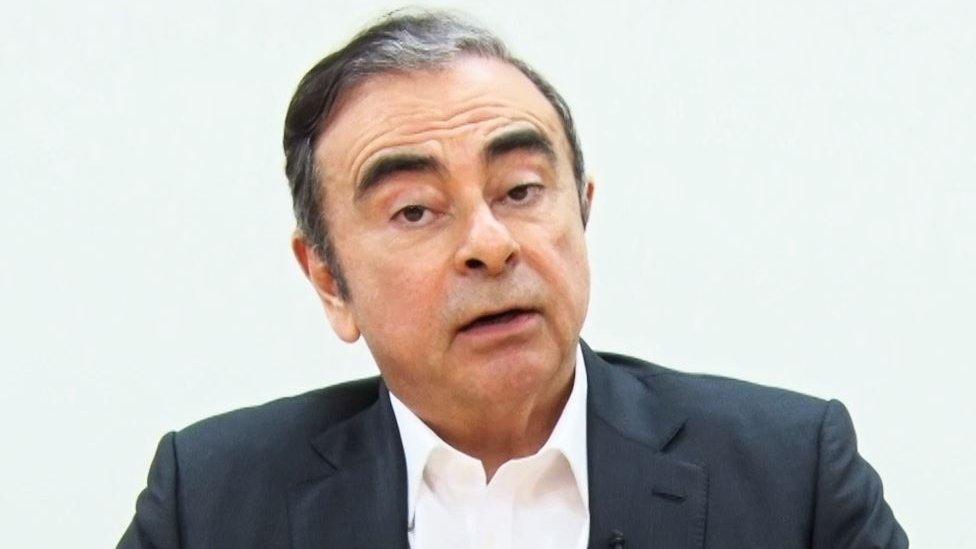
- Published31 December 2019
